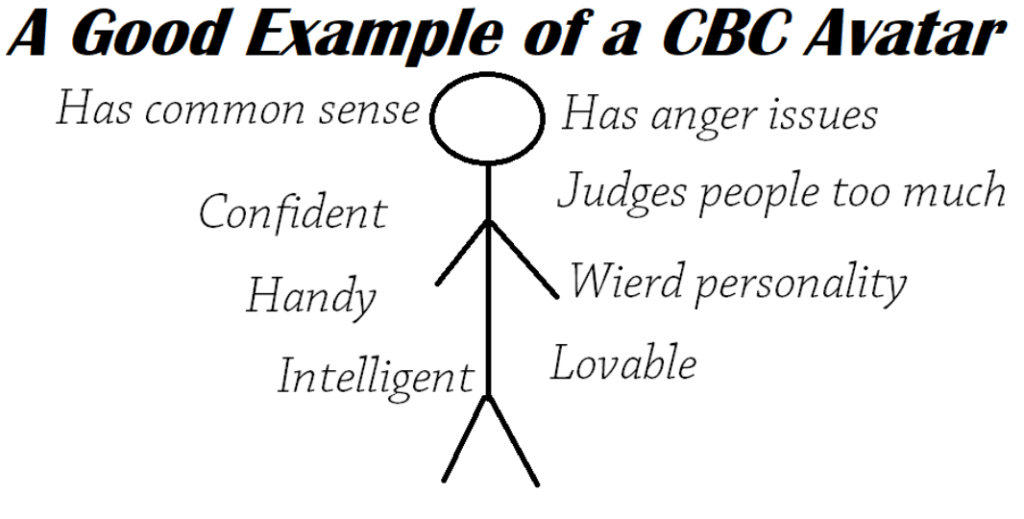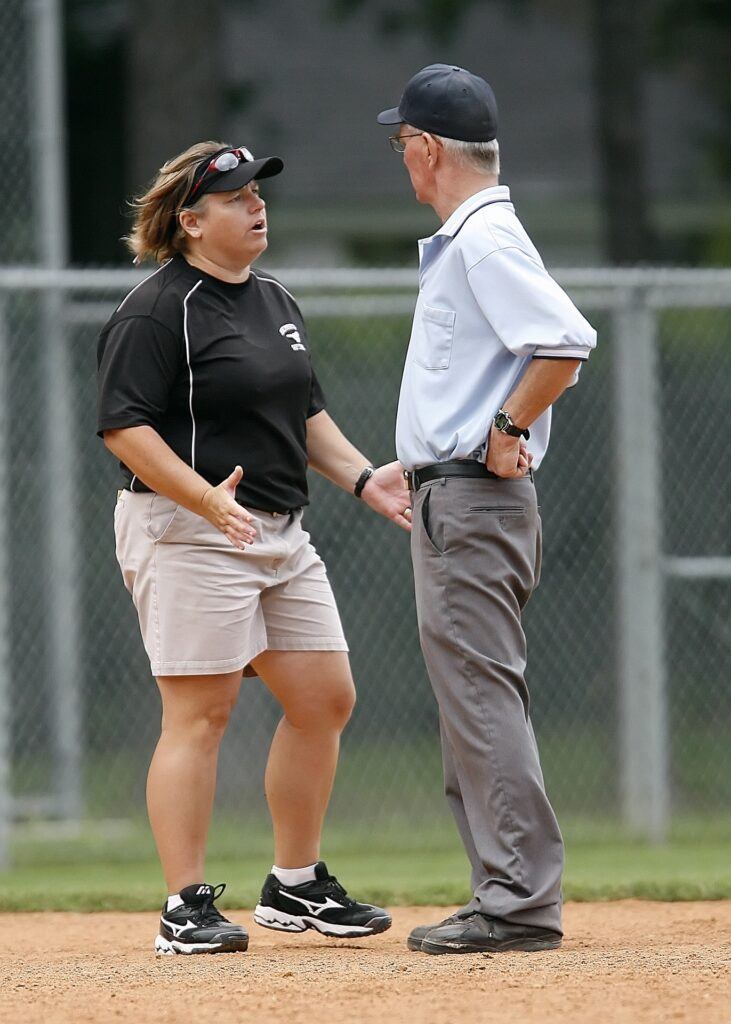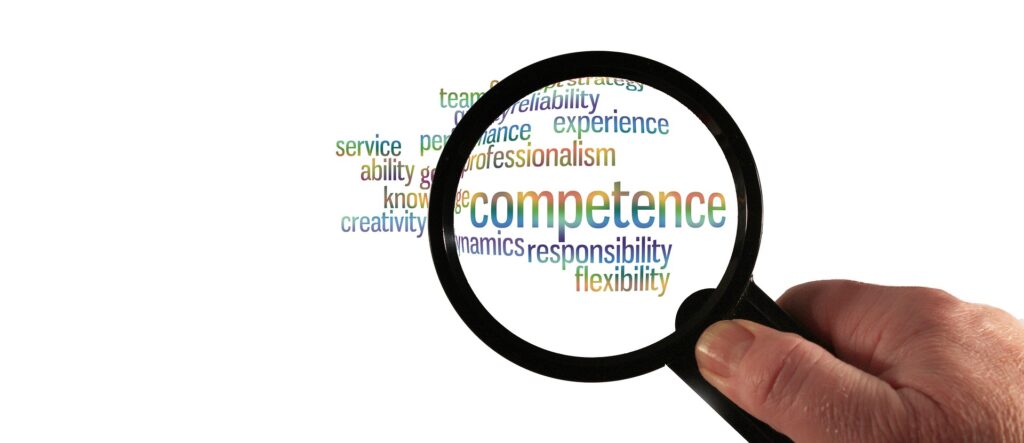
What exactly comprises a good, healthy relationship? This is a question that many, many, many of us want the answer to; wouldn’t we simply love to have the love of our life right before our very eyes?
The simple truth is, a lot of us have relationships that aren’t how we want them to be, and as a result both partners suffer! Both partners suffer, and the great news is it doesn’t have to be that way at all! Great relationships are, often enough, right around the corner, and this applies to you if you’re single, involved in a new relationship, already married, married for tens of decades, or if you’re in another kind of relationship all-together!
The supporting pillars for a strong, healthy, and happy relationship retain their value through time, which is good for us because sometimes we like having pillars to lean on… I know I do!
In this post I’ll be going through the foundations of a healthy relationship, I’ll go beyond that and give some “extras” which really help but aren’t necessary, and I’ll finish with an invitation for you to share your current experience. Let’s begin!
- The Essentials
- Communication
- Listening and Understanding
- Trust
- Connection (Emotional and Physical)
- Sex
- Positive Emotion
- Accepting and Respecting Disagreements
- The Willingness (Commitment) To Have and Sustain a Healthy Relationship
- A Healthy Diet
- Individual Development
- Confidence
- Spontaneity
- Responsibility (for your own well-being, actions, beliefs, happiness, etc)
- Honesty and Transparency
- Give Each-other The Proper Amount of Space and Attention
- Seduction and Romance (Sacred Time and Space)
- Respect
- Patience
- Relaxation
- Humor and Laughter
- Love
The Essentials

How can you build a temple without first erecting the pillars? Even as the years pass there seem to be some essentials that we simply cannot avoid if we want to live in a fulfilling relationship. You will be able to get by without developing these parts of your lives, but do we really want to “get by,” or do we want to feel fulfilled, to have an excellent life, to wake up every morning and fall back in love again?
The essentials, of course, are:
- Communication
- Listening and understanding (boundaries, perspectives, beliefs, wishes, desires, etc)
- Trust
- Connection (emotional and physical)
These four qualities are irreplaceable, they are the four pillars to a strong and healthy relationship that stand the test of time and prove their worth to those who develop these areas of their life. I have indeed ranked them in order; communication is the most important happening in any and every relationship, because with it you can build empires and without it you have next to nothing. Listening to and understanding your partner(s) is almost just as important as communication, for what good is communication if you cannot hear what they have to say? Trust is next, the feeling of paranoia resides between couples who do not trust each-other. Lastly, we must have an emotional (and therefore physical) connection with our partner.
If we aren’t connected and experiencing positive emotions with our partner (trust, security, intimacy, etc) then we know that something about the couple needs to change and/or improve. Let’s look at the four key pillars in more detail!
Communication

She gave him a look, one that he had seen before, and one that made him feel quite uncomfortable. He knew it well, even though he didn’t see it very often, because the message it conveyed was one he had heard 1000 times before: “Don’t you want me anymore?” He had finally had enough. The coffee cup flew into the air as he slammed his fist into the table and shouted, “I have always wanted you, Fraulein! I have wanted you since the day I met you! I wanted you when we got married! I wanted you every night we fell asleep together and every morning we woke up together! I wanted you and you never wanted me back! You are the one who should leave, not me!”
She looked at him with genuine ruefulness in her eyes. The corners of her lips were pulled down and her eyes began to mist with sorrow. “If you wanted me… If you really wanted me… Why didn’t you say anything?! Why did you never tell me “I love you?” Why did you take me for granted? Why didn’t you stand up for me when I needed it the most? Why!?”
His face filled with pain as he shouted, “YES! I’m sorry! I should have said something! But it is too late now, isn’t it? You already love him, and he already loves you. I have lost my chance… I had my chance, and I lost it.” He slumped to the floor and began to sob uncontrollably as she turned her head away from him. “Please forgive me… Please.”
Her eyes darkened. “You’re right… It is already too late. I shall be going now.”
…Far too often I see couples whose relationship is stagnant, resentful, lacking, and very unfulfilled as a general rule. Far too often I wish I could simply say, “Communicate with each-other on a consistent basis about how you truly feel about yourselves, each-other, and life,” however I am aware that it is never quite that simple.
I can sit here and say that communication of any kind is better than no communication at all, however I would be doing you a dis-service by saying that, even though it is true. The kind of communication I recommend is genuine, honest, and thorough communication that happens on a daily (or rather, consistent) basis. An example of this is: Let’s say I don’t want to eat pasta again for the 5th night in a row. I love her, and she’s a beautiful woman, but I want myself a delightful, plump, succulent cheeseburger. There are a few ways I can go about this: 1. I keep my mouth shut and eat the pasta. 2. I keep my mouth shut and vent to myself or my friends later on. 3. I simply tell her I don’t want pasta tonight.
I feel like most people go for #1 or #2, and by the way, if you don’t say anything about the pasta, and especially if you don’t vent to your friends later on, you’ll likely build up resentment over time. Resentment is one of the deadliest, silent relationship killers, and I cannot imagine going back into that state of being for even a hot minute. What you want to shoot for is #3. Make sure you know exactly why you don’t want the pasta, and state your case coherently and clearly. Their reaction will depend on a variety of factors, however it’s very important that you speak your peace in every part of your relationship.
There will probably be a lot of muck to muck through, however there may come a point where both of you have spoken your peace and are ready to say positive things to each-other for no real reason at all. The idea here is to speak as much genuine (unfeigned) positivity around each-other as you possibly can because doing so gives you so many benefits that I won’t even attempt to write them all here. If you cannot do that, then please, communicate your problems to each-other; the other will probably be more than happy to help the best that they can.
Listening and Understanding

We may think that it is their fault; we might blame them. After all, they don’t put in enough effort, they don’t do enough for us, they’re the reason why the relationship is so stagnant… Right? Well… This is where understanding comes in.
Relationships are tough (good spot for a “why relationships are tough and here’s what you can do about it” post), and they’re even tougher if there is no understanding of the other, their habits, triggers, things that make them happy, things they need/want to change. This is why I have invented the “Character Builder Challenge,” or CBC for short.
The CBC is easy to pick up and simple to do: write down everything that your partner communicates to you, draw a stick figure on a piece of paper (or perhaps your tablet), and combine the two together. I want you to create a visual representation of your partner(s) based on what they communicate to you so that you can understand their personality as well as humanly possible. Both of you can help each-other with this, and once both of you have your “avatars” created and refined, I recommend accepting your partner for who they are, their positive traits and their negative traits. Then, why not treat them as if they have all of the traits you’ve given their avatar?
So, if they have a problem with feeling lonely, remind them that you love them and that you’re there for them. If they are a genuinely confident person, compliment them on their confidence! It’s simple when you know their characteristics and attributes – once you know these, you can understand them for who they are and really listen to them deeply! Once you are able to listen to them deeply, they will feel heard and understood, especially if you remember what they tell you, and being able to make them feel understood (and once you feel understood yourself) your relationship will be very healthy and desirable to be in.

Trust

From my perspective, trust is the metaphysical knowledge that your partner has your best interests at heart, and the emotional feeling of security and relaxation. Both of these should co-exist within each partner(s) for trust to truly be present, along with the physical reality, of course! We all know that one person that told us we could trust them, and they still cheated on us anyway… If you’re reading this, you know who you are.
Genuine trust is what makes the world go ‘round. Without trust, corporations could not exist, organizations could not exist, society could not exist, and relationships could not exist. Even if you don’t feel like you trust your partner right now, you probably trust them to some extent – for example, you probably trust them not to burn your house down! I hope they don’t. That would be awful.
Relationships can exist without the feeling that trust provides, however the opposite of trust (fear and paranoia) isn’t a feeling that will sustain your relationship very well, unless you’re role-playing (link to post), which is an entirely different story. It’s more than likely that people who don’t trust their partners have trust issues that stem from childhood, which is unfortunate because childhood problems are very difficult to heal and overcome. A distant parent, a bully at school, unsupportive siblings, a lack of (quality) friends, a run-in with the wrong side of the law, and more make for some deeply-rooted trust issues if they are not processed properly in the moment.
It’s more than likely that trust issues are harder to handle than most people realize, which is why I don’t want to spend a ton of time talking about it here. I want your relationship to succeed, so I’ll give you a resource for finding the therapist you desire in your area. If you and/or your partner have trauma that prevents trust from flourishing in your relationship, I want to say that there is a lot of hope for the both of you, and that having as much help as you can possibly manage will propel both of you in the direction in which you wish to go.
Connection (Emotional and Physical)

Lack of connection will absolutely destroy your relationship, whether it’s physical or emotional. The sad part is that many of us know this fact all too well, myself included, which is why I want to spend a lot of time on this section in particular.
We think about connection in different ways, you and I. It’s most likely the case that you and your partner(s) consider connection differently as well. For some, connection may be holding hands and hugging, whereas to another connection means lots of sex, communication, and emotional intimacy. It’s important to understand your partner’s stance on connection as well as your own, and this is the first step to becoming connected for the long term.
Since both of you are different people there will probably be some… Disagreements. One of you may not find sex to be a part of your connection, and one of you may find sex to be an essential part of your connection. Often these disagreements will be difficult to overcome since connection is something that is intimate and special to you – in other words, compromise may be difficult here. This is why I want to suggest something that may sound a little wacky, but something that will help you in this regard.
I want the partner who is least willing to compromise to ask yourself, “Why can’t I connect with my partner the way he/she wants to connect with me? Our definitions of connection are different, but why am I unable to compromise?” Just answering these two questions, even if you’re just answering them by yourself for yourself, will result in an extraordinary insight that may just save your relationship. It can very well be that your unwillingness to compromise and connect is linked to an event that happened in your past, or a certain belief system that you hold, or perhaps a few expectations that are not being met.
I can say with a large amount of certainty that partners who do not connect with each-other had problems with past people and events that influence their opinions about their partners (and sometimes people) in general. So, if this is the situation you find yourself in, I highly recommend self and/or professional counseling because being able to genuinely connect with your partner is one of the greatest experiences that can happen on the entire planet – I say do whatever it takes to make it happen!
You may also find yourself with a partner who is unwilling to connect with you (even on their own terms) and unwilling to change, or even unwilling to try. If this is your situation then I suggest finding connection with a person who is willing to connect with you. I know this is easier said than done, especially if you’re already married and marriage is very convenient for the both of you, but I strongly suggest that both of you be happy. If your partner absolutely refuses to be happy (refuses to go to therapy, refuses to communicate, refuses to connect, etc) with you after you try to speak with them about it, then it is time to find a better life for yourself.
It really saddens me to say that, but connection really is that important – it’s not only love, it’s the ability to relax, feel confident around, supported and encouraged by, and even be told to step it up by your partner. It’s absolutely wonderful to have a partner who is willing to connect with you, and without this, it’s almost like you’re participating in another friendship – except, you’re living together, or otherwise seeing each-other all of the time.
Now we move on to important aspects of any relationship that aren’t necessarily “pillars,” but are still ways to experience love and positivity with each-other in the long term. I consider these next points the “walls and roof” of the relationship – they aren’t necessarily the pillars, but they’re just as important at keeping you safe! Here we go…
Sex

Ahh yes, the wonderful act that feels so right! While sex isn’t required for every single couple on the planet, I’ll bet that you’d like a healthy sexual relationship with your partner, especially if you’re reading this section of the article.
Sex is one of the most powerfully positive acts that two humans can perform, and this is very well known by those of us who have healthy sexual relationships. There are some couples, however, who don’t have healthy sexual relationships, and it can be quite the challenge for them to cultivate this aspect of their life. I hear many, many stories of unfortunate couples who fell out of love, took off their masks, experienced reality setting in, revealed their trauma, revealed their incapabilities, and stopped living in a healthy sexual relationship if they even had one to begin with. This is so, so unfortunate because a healthy sexual relationship is one of if not the most important factor for a healthy relationship in general, and because couples generally have a difficult time cultivating and maintaining a sexual relationship.
This is where communication comes in! Sit down and talk about it. If both of you have psychological barriers against sex then both of you should know about them. If it turns out that one of you is content and the other is not, work towards a compromise. If it turns out that both of you want sex but both of you want it within conflicting psychological barriers (IE, one of you wants to be kinky and the other doesn’t) then you can still work towards a compromise. How you understand each-other will be unique for your situation but communication is still one of the greatest antidotes for sexual stagnation.
One idea I’d like to share goes something like this: Even if you are content and don’t want sex, your partner may feel the opposite. Instead of denying them sex because you feel satisfied, I suggest listening to what they desire and willingly being there for them. I find it hard to believe that someone who is truly satisfied with their life will deny sex with their partner, especially if they love each-other. If one of you is willing to have sex and one of you is not, I suspect that one of you is not satisfied in some way, shape, or form, and I suggest that the unwilling partner analyze their own psychological barriers so that they may feel satisfied with their life and, be there for their partner (something that happens automatically afterwards)!
Positive Emotion

Every relationship needs a healthy dose of positive emotion every day. Yes, that means yours as well! It’s very well possible that you’re already experiencing a lot of positivity with your partner, but there are some couples who don’t feel positive around each-other, or one of them is emotionally fulfilled and the other is emotionally stagnant.
If this describes you then I suggest a very, very small lesson in biology – serotonin makes you feel good! Yes, emotional stagnation is no fun, but I suggest you get some serotonin moving inside of your body as soon and as often as you possibly can, and the reason is because it’s a lot easier to do this than to get into the habit of feeling positive emotion, consistently, each and every day.
Once you’re in the habit of producing your adequate amount of serotonin every day, I suggest that you (and/or your partner) get into the habit of expressing gratitude every day. “I’m truly thankful for the dinner, honey” is an amazing thing to say especially if you truly mean it. I could also suggest a psychological evaluation of exactly why you don’t feel positive emotional around your partner(s), however this is quite painful and these reasons tend to surface more and more once you consciously decide to feel a healthy dose of positive emotion every day. It’s probably best to cultivate gratitude and humor in your relationship first, and worry about the underlying psychological factors second.
Accepting and Respecting Disagreements

A couple consists of two very different people, and consequently there will be disagreements between you two on (probably a lot of) different aspects of your life. Accepting that these differences exist, even if you don’t agree with them, is crucial to having peace in your relationship. Respecting them is the next step. If you don’t respect each-other’s religious, political, or philosophical beliefs and viewpoints then you will probably try to convince your partner(s) about your viewpoint and why it’s so fantastic, which often leads to unneeded (and often unresolvable) contention.
Now, on major disagreements (such as disagreements on sex, responsibility, trust, etc) I still suggest that both of you accept that these disagreements exist, but I also suggest that both of you try to see from the other person’s perspective and create a compromise based on what’s healthy for your relationship. If one or both of you are unwilling to change your viewpoint when the needs and wants of your partner is at stake, I suggest getting professional counseling since they will be able to help you far more than I am able to help you here.
The Willingness (Commitment) To Have and Sustain a Healthy Relationship

To continue with the last tip, having an overall willingness to commit to each-other and put in the effort required to have a healthy relationship is absolutely wonderful. If one or both partners are unwilling to meet the other halfway then I’m afraid you’re up against a gigantic challenge, one that often results in either therapy, break-up, or divorce.
However, don’t fret if you’re in this situation. It may be that the unwilling partner is unwilling because of a particular reason or belief, and it may be that exploring this belief will uncover why, exactly, they are unwilling to connect with you. There is a lot of hope for you, especially if you’re the willing one yourself, and there is especially hope if your partner is only unwilling to commit because of superficial reasoning. It’s really when one or both of you have gone through some form of trauma (great opportunity for a link) that truly committing becomes almost impossible, and this is what destroys a good number of otherwise perfectly healthy relationships.
A Healthy Diet

When we think of an unhealthy relationship we think of things like lack of emotional connection, lack of communication, lack of trust, etc. But did you know that an unhealthy diet is a huge contributing factor for unhappiness in your relationship?
Eating an excess of the bad stuff – sugar, processed starch, processed meat, canned foods, etc – causes inflammation to be present in your body, especially if you eat these things on a consistent basis. Inflammation leads to irritation, fog brain, and general dissatisfaction with your life, and this can greatly impact your relationship even if both of you are psychologically healthy. Bet you didn’t see this one coming, did you?
If one or both of you is/are eating a crappy diet on a consistent basis I suggest that you follow a diet plan (great opportunity for an affiliate link) or simply make a conscious effort to eat healthier (also a great opportunity for a link). I suggest eating avocado toast for breakfast, I’ve noticed a gigantic improvement in my health since I started doing that.
Individual Development

When we think of healthy relationships we think of developing together and helping each-other succeed. However, when we really come down to it, developing ourselves as individuals is just as important as helping each-other develop in our own way. I touched on this in the “Confidence” section, but it’s worth repeating and going more in-depth about it since it’s so important.
A valid way to develop yourself is to ask yourself, “What can I do for me that would propel me in the direction I want to go in?” Do you want to pick up art? Do you want to dance? Rock-climb? Travel? What is it you want to do for you? Do you want to learn a new skill? Hmm?
I strongly suggest that you become aware of the answer to this question, and I even suggest that you ask your partner what they want to do for themselves as well. It’s okay to be alone while you’re developing yourself, especially if your partner is also aware of this and is spending some time developing themselves as well. Both of you will be much happier with yourselves, and therefore with each-other, as a result!
Confidence

If both of you are confident in yourselves then there will be no issue in your relationship. I see it sometimes, both partners are quite confident in themselves and their partners and there are never any real issues between the two. That’s what confidence generally tends to do, it makes life feel *amazing!*
However, I suspect that one of you is confident and the other is not so confident. The reality is, if one of you is confident and one of you is not (or is only slightly confident) then there will most likely be dramas, insecurities, and distance between you two, especially if the confident partner has decided they’ve had enough.
I’m not here to judge or criticize, I want to see your relationship be as healthy as it can be. A lack of confidence is not the end of the world, it’s a state of being that can be cultivated and built just like every other state of being, even though cultivating confidence can be more difficult than cultivating most other emotional states.
I suggest that you ask yourself, “What do I feel insecure about? Why?” Then once you answer these questions, ask yourself, “How can I change myself now that I know this? How can I make my life better? How can I make my partner’s life better?” Answering these questions, even if it’s just for yourself, will give you some very valuable insights that will boost your own, personal confidence. Boosting your own confidence is essentially the same as being confident together, as a couple, so I greatly encourage you to help yourself as much as you feel like you need to. I believe in you!
You can also take courses (link to confidence course) which claim to help you with this, however I suspect that being your own psychologist for a day will be more effective in the long run 🙂
Spontaneity

So much of our life is wrapped up in monotonous routine, obligation, and overall “dullness.” We wake up already knowing what we have to do for the day, and we get up and do it, sometimes with a feeling of fear and anxiety.
That’s why I have this product that will help you be spontaneous for only $999/mo! Get it now or else you won’t be able to be spontaneous in your life whatsoever! Only for a limited time!
If you clicked on the link you’ll know I’m joking. That was me being spontaneous, I didn’t plan to write that ahead of time, but I saw an opportunity for a joke and I took it. The reason (ironically) to be spontaneous is because it feels good! It feels good to make a joke in the moment, or laugh at something unexpected that happened yesterday. I want to make a distinction between being spontaneous and being impulsive, though – I’m not saying to be impulsive whatsoever. What I mean is, if you act outside of your routine, especially if it’s on a whim, and you get a good feeling out of it, then you’ve been spontaneous correctly.
“The tree fell in the forest, and it made a sound. However, since no one was there to hear it, a squirrel chittered away as if to alert the others a tree had fallen, even though they were 100 miles away.”
^ That’s a good example of proper spontaneity. Being unexpected, being spontaneous with your partner(s), especially in the bedroom, is a sure sign of a healthy relationship! Do you want to create a video? Do it on a whim! Is she inviting you even though you don’t normally respond? Respond this time! There are many ways you can be spontaneous and “giving into it’ once in a while can be very healthy when you’re doing healthy activities, and I recommend doing it.
Responsibility (for your own well-being, actions, beliefs, happiness, etc)

“Why didn’t you do this? Why didn’t you do that? You’re the one who isn’t taking initiative! You’re the one who needs to take care of xyz! Seriously!”
Personally, I’m quite tired of hearing this from almost every couple I meet. Every time there’s an argument over who’s responsible for what, why, when, and where, and it makes me wonder how both of them would be if both of them acted responsibly. Sometimes there’s passive aggressive behavior coming from one partner in response to the other not doing what “they ought to do,” and this takes me to my first recommendation on the subject: both of you sit down together, write down your collective list of responsibilities, and consciously decide who does what, why, and when.
This will probably make both of you upset at first since we tend to view responsibility as something we’d rather not have. However, compromise is crucial here, you guys are a team that love each-other and you want to succeed with each-other, so I suggest that both of you decide exactly what you want to do, why, and when. Stick to your agreement, even if you don’t feel like it that day, because even though responsibility is a dull part of our day it’s a necessary one, and working together to get the “dullness” done and out of the way is far better than making it worse by fighting about it!
Honesty and Transparency

Transparency goes hand in hand with communication, but the difference between the two is that a couple can communicate with each-other, but they may not necessarily be… Honest with what they say. That’s why transparency is important as well as communication, it takes what regular communication has to offer and ramps it up to an 11!
However this is often easier said than done. I remember when I used to be dishonest with myself about my situation, it was quite the terrible time. I’d say, “Well you just need a girlfriend and you’ll be happy,” when really what I needed was to be there for myself a little bit more. Honest communication with yourself, and then your partner(s), is absolutely critical for a healthy relationship. It also builds trust, and it can lead to some pretty steamy sessions if both of you are honest about what you want ;).
Give Each-other The Proper Amount of Space and Attention

You know the old saying, “Balance is everything?” Well, it is, especially when it comes to too much attention and/or too much space, mentally and/or physically speaking.
One of you may want more space than the other, one of you doesn’t want attention, or the kind of attention that your partner is giving you isn’t what you want, or maybe you don’t like the reason(s) you’re staying apart even if they were communicated beforehand. Your situation is unique to you, but one of the beautiful things about a relationship is the ability to spend time together and enjoy each-other’s company. If this isn’t happening, or if the attention you’re giving each-other isn’t desirable to one or both of you, then I suggest that both of you communicate with each-other and tell each-other what your proper amount of attention and space looks like. This way you can spend quality time with each-other, in the correct context, and both of you will be one step closer to having what you need and when you need it!
Seduction and Romance (Sacred Time and Space)

I feel like seduction and sacred time and space go very, very well together. We don’t think of home when we are anywhere other than home, right? We don’t think anyone is our partner until we look at our partner, right? I think the same goes for seduction; we know where it “feels like seduction,” just like we know where it feels like home. This is why I put both of these things together.
I also mention these two aspects because, of course, they are a part of any healthy relationship. Even if the two of you don’t want to have sex anymore, flirting with each-other, doing seductive things at seductive times, and calling one area of your house the “special place” will all help in bringing the heat back into your relationship. Having a special time doesn’t hurt, either, as long as it doesn’t begin to feel like a routine.
I’d say this is one of the things we first lose as long-term relationships begin to be, well, long-term. We don’t go on dates when we hit a certain point, we don’t try to seduce over the long-term, we don’t have the sacred times and places, and so our relationship loses a bit of it’s spark, a spark that is vital for our health. I recommend re-igniting it one day without telling your partner what you’re up to (in order to be spontaneous), and see how they react.
Respect

I have already covered respect in a specific area (accept and respect each-other’s differences), however having respect for each-other in a general sense is, if nothing else, an amazing prevention for potential problems that may arise. If both of you respect each-other (and make an effort to respect each-other over a long period of time), then you’ll value each-other’s company, opinions, beliefs, feelings, and problems, and this goes a long way to diffuse any potential problems before they arise.
I have heard many situations where one partner does not respect the other because of a “how could I possibly respect such a person?!” kind of attitude. I don’t agree with this line of reasoning, however it brings up a valid point; if you do everything you can to be respectable and to respect yourself, then you’ll have a much easier time asking your partner, “I’d like some more respect from you” because you’re already respectable and you already respect yourself. If this is your situation then how you become respectable is part of your personal, individual development.
Either way, I highly recommend a high level of respect coming from both of you, as this really does prevent a lot of future problems from happening, and it also cultivates the potential for genuine trust.
Patience

Even if we decide to help each-other with the faulty parts of our personality, it isn’t going to happen overnight. Patience with our partner (and ourselves) is crucial for allowing growth to take place, growth that may very well be needed and desired by you and/or your partner.
The greatest enemy of patience is anger, and the greatest friend of patience is love, so if you love your partner (which I’ll get to in a little bit) then you’ll be patient with them by default. If you’re angry (or resentful) with your partner (or anyone/anything else) then you’ll be irritated and impatient with them by default. I suggest consciously being patient with them and seeing what they can accomplish on their own!
Relaxation

I’d say this is my biggest problem – I don’t relax as much as I should! And relaxing around your partner is one of the biggest signs that you trust them and that you feel confident around them.
One of the saddest things I’ve noticed about people who are going through trauma in their lives is that they have trouble relaxing. Their muscles are chronically tense, and this can cause all kinds of problems: lack of sleep, vision loss, brain fog, irritability, chronic fear, and more. I feel like these are the kinds of people who can benefit from this advice the most: please, relax as much and as deeply as you can, especially around your partner. Have them do the same with you. Meditate together, watch movies together, consciously relax around each-other as much as you can.
What I’m NOT saying is to ignore any warning signs that your gut is giving you. If your gut is saying, “You shouldn’t be with this person” then you should probably listen to it (not necessarily obey it) and see if that really is the truth. If you know that your partner loves you and has your best interests at heart, though, then I recommend consciously relaxing around them as much as you can, for yourself and them as well!
Humor and Laughter

Humor is the opposite of (and antidote to) seriousness. How many people do we know who are overly serious who could use a joke every now and again? I know a few!
Don’t be afraid to joke around with each-other and enjoy each-other’s company. The more you laugh the healthier and better the both of you will feel, is that not reason enough? 🙂
Love

Last but certainly not lease, we have love. As it seems to me there are two kinds of love; there is the physical “acting out” of love (holding hands, going to work for the family, washing the dishes, etc) and there is the felt experience of love. From my perspective many couples love each-other in the former situation, but unfortunately, not in the latter situation. The feeling of love seems to fade away, leaving only the physical “acting out” of love.
You can cultivate the feeling of love again if you choose to! The best way for me is by consciously expressing gratitude for everyone and everything I have. “Thank you for making dinner, this is amazing! Thank you for doing the dishes today. You know, I’m truly grateful that I’m with you because you make my heart explode with gratitude.” Doing this, consistently, overtime, and meaning it will produce the feeling of love. If you combine this with the physical act of love, you will be participating in a relationship that is extremely desirable, and one that can continue against all odds.
Conclusion

Thank you for taking the time to read my article! In short, if your relationship isn’t very healthy, I recommend individual development first and development as a team second. If you’d still like to visit a therapist I’m more than happy to provide a link for you so that you can receive the personal help you deserve.
I really hope this helped, I’m on a mission to make sure you have a healthy relationship with your partner(s). Don’t be afraid to leave a comment below describing your unique situation. Have a wonderful day! 🙂
Sources
This post was made with some help from:
Leave a Reply